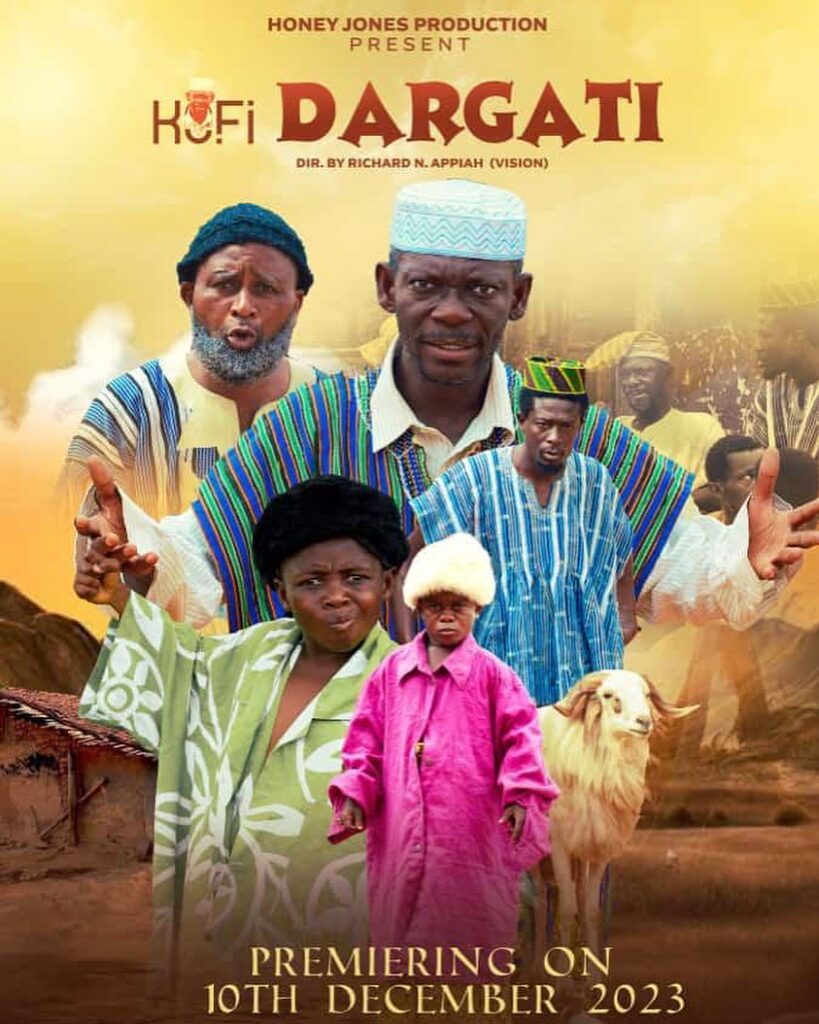Members of the Dagara and Dagaaba communities in Ghana, Burkina Faso, Côte d’Ivoire, and beyond have raised strong objections to a movie titled ‘Kofi Dagarti’ scheduled to premiere on December 10, 2023.

In an official press statement shared on Facebook, the group called for immediate suspension of the premiere as they expressed deep offense and outrage, pointing to the usage of a derogatory term within the movie that has a historical context of mocking and discriminating against their ethnic group, particularly in the Asante region.
“We, the Dagara/Dagaaba people of Ghana, Burkina Faso, Côte d’Ivoire, and beyond, are outraged and offended by the movie production titled: ‘KOFI DAGARTI’,” the statement highlighted.
They attribute this term to colonial prejudices, emphasizing that it reflects a lack of respect and tolerance for their cultural identity.
The statement, directed at the Ministry of Tourism, Arts, and Culture, as well as the Manager/Producer, Official Agya Koo, of the movie, explicitly calls for the withdrawal of the movie’s publication, cancellation of its premiere, and an unconditional apology to the Dagara/Dagaaba people across Ghana, Burkina Faso, Côte d’Ivoire, and the broader global audience.
The term “Kofi Dagarti” used in the movie is denounced as not only insensitive but also irresponsible. Filmmakers are reminded of their duty to create content that is respectful, inclusive, and original, refraining from the use of pejorative terms that reinforce negative stereotypes, perpetuate biases, and offend specific ethnic or cultural groups.
The group highlights the potentially serious implications of such terms on social dynamics and harmony within the country, emphasizing that they can tarnish the reputation of the movie and subject its creators to backlash and controversies.
A call for caution and creativity in handling cultural and ethnic references in movie production is emphasized, urging filmmakers to strive for characters and narratives that authentically reflect the diversity, complexity, and richness of different cultural backgrounds.
The statement encourages the challenging or subverting of harmful stereotypes rather than their reproduction or reinforcement.
In conclusion, the press release asserts the pride of the Dagara/Dagaaba heritage and conveys a firm stance against any attempt to demean or marginalize their community. The collective plea for a ban underscores the importance of fostering a culture of respect, understanding, and inclusivity in the cinematic landscape of the country.
It will be recalled that in 2010, a popular movie titled ‘Mallam Issah’, in which Agya Koo posed as a Muslim cleric, incurred the displeasure of the Muslim community in the Kumasi metropolis.
The United Form for Islamic Affairs, a movement for all Muslims (Al-sunna Waljamah), Tijaniyya, Council of Zongo Elders, etc) demanded the withdrawal of this movie on all platforms.



